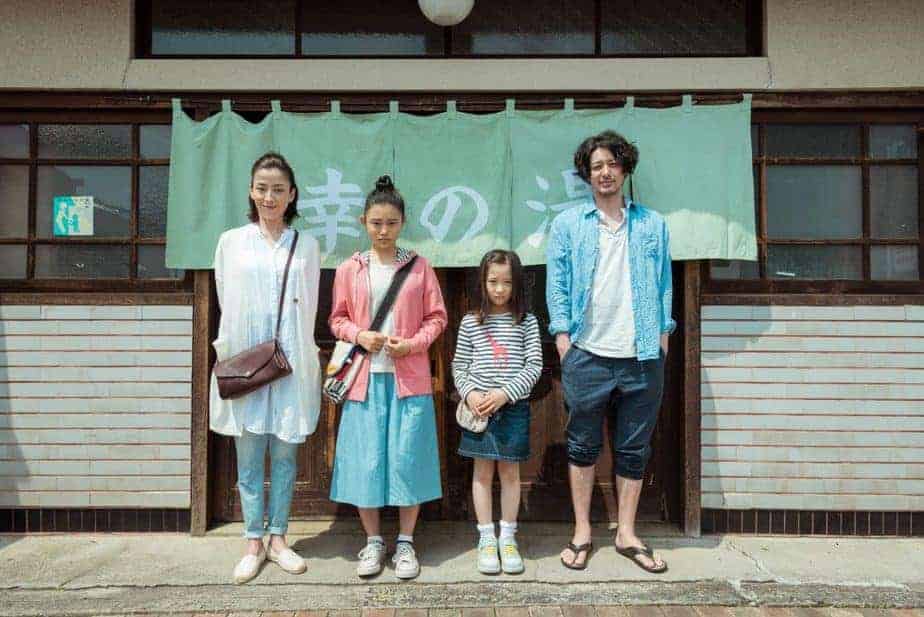One of the most celebrated films of 2016, Ryota Nakano's second and last (until now) film won a number of awards, including ones for its female protagonists from the Japanese Academy, and was the official submission for the Best Foreign Language Film at the 90th Academy Awards.
Her Love Boils Bathwater is part of the 2019 Japan Foundation Touring Film Programme
Futaba is a single mother struggling to make ends meet after her husband suddenly left her and the family's bathhouse business went under. While coming to terms with her situation, she is dealt another blow when she is diagnosed with terminal cancer. Instead of succumbing to despair, though, Futaba decides to tie all loose ends in her life in the few months she has left. This includes changing her daughter's Azumi, composition, making her brave and not afraid to face her own fears and also finding a suitable man for her; tracking down her estranged husband, in a series of events that brings his new daughter, Ayuko, into their lives. Get him to run the family bathhouse business again; deal with a number of secrets from her past. In her efforts, she is assisted by private investigator Takimoto, who eventually becomes a friend of the family, while, during her travels, she stumbles upon Takumi, a drifter who also becomes a friend.
Ryota Nakano directs a movie that is part family drama, part road movie, in the recognizable style of the Japanese indie, with most of its pros but also some of its cons. In that fashion, the narrative focuses on Futaba, and her struggle to make everything on her list happen, through an approach that combines comedy with drama in a delightful fashion. This aspect benefits the most from Rie Miyazawa, who gives an exceptional, quite nuanced performance as Futaba, displaying a number of sentiments and psychological statuses throughout the movie, without losing her sense of measure even for a scene.
Check the interview with the director
Through her mostly, but also through the other female leads, Nakano examines a number of elements that form the concept of womanhood. In that fashion, the film deals with being a mother, a daughter, a student, member of single-parent family, an entrepreneur, a friend, a rival, even a handicapped individual. Hana Sugisaki as Azumi, Aoi Ito as Ayuko and Yukiko Shinohara as Kimie highlight all the aforementioned capacities in the best fashion, highlighting both their effort and their chemistry, with the first, in particular, shining in a rather difficult part. Through their efforts, but also through the presentation of Kazuhiro, Takimoto and Takumi, who actually react to the actions of the women around them instead of leading, Nakano presents a rather unusual comment, that “this is a woman's world”, which is one of the main reasons the film stands out from the plethora of similar Japanese films.
The road movie aspect is also entertaining, but I think that the script goes a bit too far after a fashion, with the various side stories being too many for a single individual to have, although some of the plot twists are really impactful. At the same time, the narrative suffers from the usual “ailment” of contemporary Japanese films, of overextending its duration during the end, with no apparent reason. In general, the editing is quite good, implementing a suiting pace, but the film would definitely benefit from some trimming, particularly during the finale.
These faults, however, are not enough to ruin the general sense “Her Love Boils Bathwater” leaves, as its cheerful approach and the engaging dramatic elements provide a rather entertaining experience.















